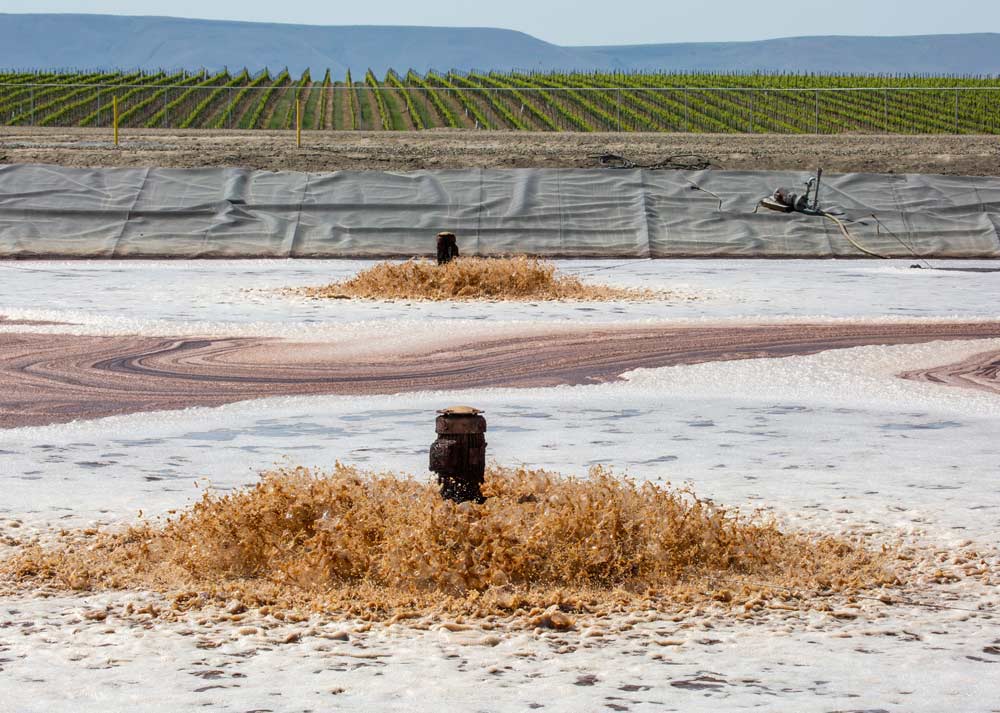
Pump aerators process winery wastewater in a double-lined processing pond in 2015 near Benton City, Washington. The state will begin requiring wastewater permits for wineries in July 2019. (TJ Mullinax/Good Fruit Grower)
The state of Washington, the nation’s second-largest premium wine producer, has created new winery wastewater regulations that will take effect next year.
The state will begin requiring special wastewater permits for wineries to protect the environment from pollutants contained in the byproduct water they discharge. The Winery General Permit will take effect July 1, 2019.
Typically, the permit will be required of all wineries that discharge more than 53,500 gallons of wastewater per year as irrigation, to a lagoon, to a road as dust abatement, to a subsurface infiltration system, to an infiltration basin or to a wastewater treatment plant. Wineries producing 7,500 cases a year would likely meet that threshold, according to the permit.
Winery wastewater, if not properly managed, can damage soil, kill aquatic life, degrade wastewater treatment facilities and pull metals from the soil into groundwater that can harm people, according to the state Department of Ecology.
Reaction to the new requirements is mixed.
“Overall I believe the permit strikes a fair balance between protecting the environment and regulating the wine industry,” said James E. Warram, director of environmental, health and safety services for Ste. Michelle Wine Estates, the state’s largest wine company.
The permit will affect seven of Ste. Michelle’s wineries, and the company is analyzing what changes need to be made at all of them.
“The impact to the industry will be to create a tiered system across the state where exempt wineries can operate without a permit and everyone else will operate with a permit,” he said. “Providing regulatory relief to the small exempt wineries is a positive feature of the general permit. For those wineries governed by the general permit they will now operate on a more level playing field.”
At least one small winery owner favors the permit, as well.
“I think impacts on the industry overall will be less than I anticipated,” said John Morgan, manager of the Lost River Winery in Walla Walla. “I have some concern that smaller players, who are exempted from the permit, will feel they are exempt from thinking about the impacts of their business. This could potentially backfire if a small player does something silly like polluting a salmon stream.”
Lost River produces about 4,500 cases of wine each year, too small for the permit to apply.
However, a group of small wineries considers the changes unfair.
The Ecology Department lacks the authority to issue permits for wineries because it has not documented any impact of winery discharge on the waters of the state, said Paul Beveridge, president of Family Wineries of Washington State, a Seattle nonprofit that represents small wineries. The organization had asked the Ecology Department to raise the threshold of 7,500 cases to 105,000 cases, roughly the size at which wineries qualify for the largest federal excise tax exemption for small producers.
“We see this as an overreach by the agency to get more fees out of us,” he said. •
—by Ross Courtney






Leave A Comment